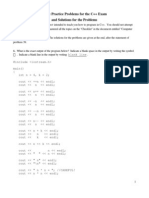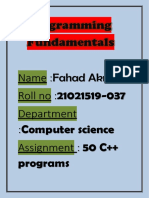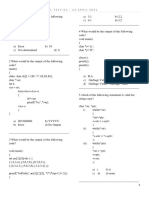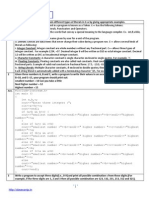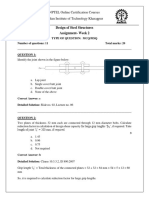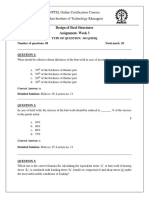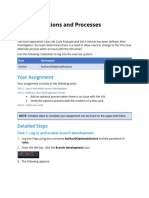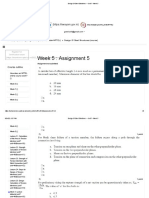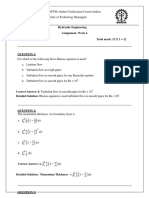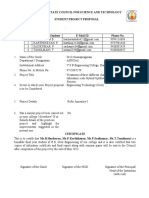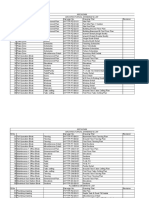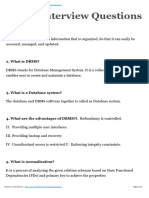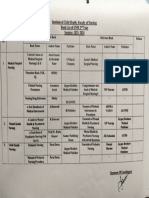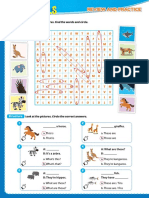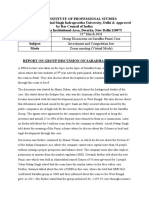0% found this document useful (0 votes)
216 views6 pagesSome Practice Problems For The C++ Exam and Solutions For The Problems
The document provides 39 practice problems for a C++ exam along with solutions. The problems cover topics like basic input/output, operators, conditional statements, loops, arrays, enums, and functions. Sample programs test concepts like precedence of operators, conditional logic, looping, manipulating character arrays, and getting user input. The solutions are provided after problem 39.
Uploaded by
gowricivilCopyright
© © All Rights Reserved
We take content rights seriously. If you suspect this is your content, claim it here.
Available Formats
Download as PDF, TXT or read online on Scribd
0% found this document useful (0 votes)
216 views6 pagesSome Practice Problems For The C++ Exam and Solutions For The Problems
The document provides 39 practice problems for a C++ exam along with solutions. The problems cover topics like basic input/output, operators, conditional statements, loops, arrays, enums, and functions. Sample programs test concepts like precedence of operators, conditional logic, looping, manipulating character arrays, and getting user input. The solutions are provided after problem 39.
Uploaded by
gowricivilCopyright
© © All Rights Reserved
We take content rights seriously. If you suspect this is your content, claim it here.
Available Formats
Download as PDF, TXT or read online on Scribd
/ 6
